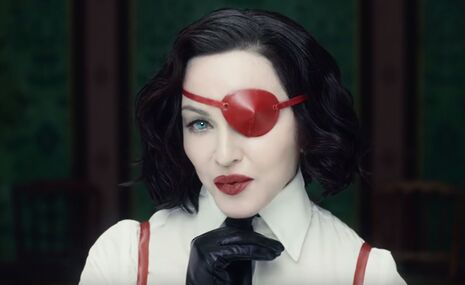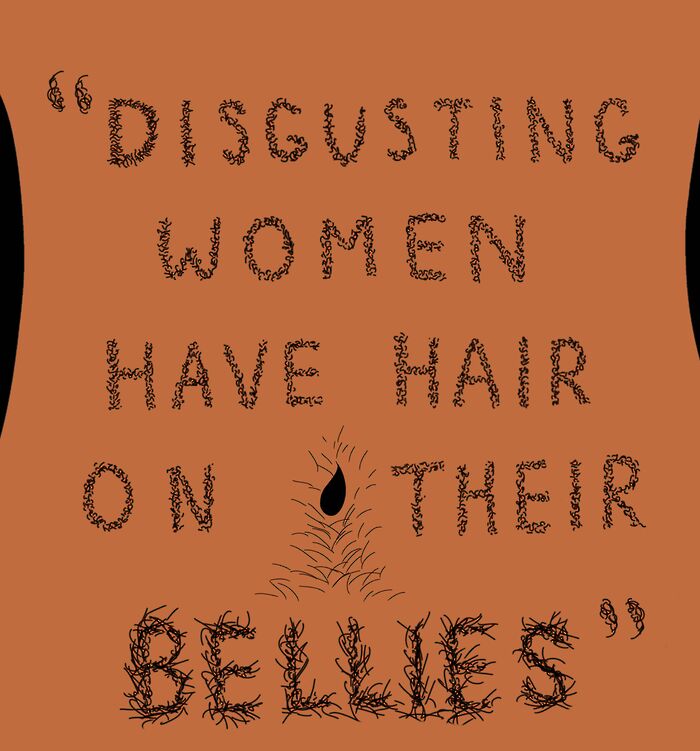‘Punished for turning 60’: Madonna and ageism
Annabelle Gorman discusses Madonna’s fight against ageism and the beauty industry’s obsession with youthfulness

The front cover of the June edition of Vogue shows Madonna lying in a bathtub, submerged in what looks like milky coloured bathwater, holding a book to her chest. The image of the melancholy, troubled woman lying in water recalls paintings by the Pre-Raphaelites, such as Sir John Everett Millais’ Ophelia. These images can be seen as depicting an ‘untamed’ woman, a notion that can perhaps relate to Madonna’s rebellious career.
"I’m fighting ageism...I’m being punished for turning 60"
In Vogue’s interview with Madonna, topics ranging from her upcoming album to motherhood are discussed. However, something that Madonna appears to feel particularly passionate about is the treatment that she is receiving now that she has turned 60: “and now it’s that I’m not young enough…Now I’m fighting ageism, now I’m being punished for turning 60.” She proceeds to say that the Daily Mail in particular appears to be offended by the fact that she is still “relevant”. For as someone as legendary and iconic as Madonna to feel as though she is being criticised for her age begs the question, why is it that the figure of the older or mature woman often conjures negative associations?
Skincare and makeup products targeted at mature women are often advertised with the promise of being ‘anti-ageing’, by claiming to remove the appearance of wrinkles, fine lines and dark circles. Foundations, primers and highlighters claim to add radiance to the face, whilst moisturisers and even hand creams allegedly fade age spots and imperfections. By implying that such products will give the appearance of youthful glowing skin shows how typically, the image of an older woman does not coincide with the female beauty standards of the twenty-first century.
It can thus be said that wrinkles, dark circles and age spots are a ‘problem’ that the cosmetics industry has created. By making women aware of this ‘issue’, they can then provide a ‘solution’. Therefore, it can be said that if it weren’t for this multi-billion-dollar industry, women in particular, would perhaps not have such a fear of looking old.
Wrinkles, dark circles and age spots are a ‘problem’ that the cosmetics industry has created.
The fact that these anti-ageing products are often targeted at a female consumer, means that the desire to look young can be seen as a feminist issue. In other words, for a woman to not feel ‘pretty’ enough is often tied up with the feeling of not looking ‘young’ enough.
In Vogue’s interview with Madonna, the irony is that the black and white filter on the photos that are printed alongside the article blur Madonna’s face. Although she is presented as a mature woman partly due to the pearl necklace, the white shirt with the high collar and the patterned headscarf, the filter blurs any imperfections upon her face and body. She appears utterly smooth and marble-like. Although due to cosmetic surgery Madonna does appear far more youthful than 60, the airbrushed finish in Vogue partly enforces the criticism that Madonna is commenting upon in her article.
However, “ageism” doesn’t just include the appearance of age but also what Madonna describes as “relevance”. Why is it that people are threatened by the presence of a 60-year-old woman within the music industry? Returning to the notion of the ‘untamed’ woman, Madonna addresses this by commenting that not only is she “not young enough”, she is “not married enough”. Such a prominent female figure within Western popular culture is thus aligned with the idea of an independent woman who can’t sustain romantic relationships. Madonna is more dangerous as a single woman than she is as a married one.
Ageism was perhaps not intended to be the main topic of Vogue’s interview with Madonna. However, it is a topic that reveals, in part, the frustration Madonna feels towards the fact that she still has to prove herself. Therefore, what Madonna briefly touches upon in her interview, as one of many things that she is criticised for, encourages a wider conversation concerning the positive associations of youthful appearance and behaviour. This brings to light the necessity of figures such as Madonna. With such a large platform and following, this female icon can begin to prove that age and “relevance” are not connected. “I’m going to make it easier for all the girls behind me when they turn 60. I hope they appreciate it.”
 News / Downing Bar dodges college takeover31 January 2026
News / Downing Bar dodges college takeover31 January 2026 Comment / College rivalry should not become college snobbery30 January 2026
Comment / College rivalry should not become college snobbery30 January 2026 Fashion / A guide to Cambridge’s second-hand scene2 February 2026
Fashion / A guide to Cambridge’s second-hand scene2 February 2026 Lifestyle / Which Cambridge eatery are you?1 February 2026
Lifestyle / Which Cambridge eatery are you?1 February 2026 News / Cambridge for Palestine hosts sit-in at Sidgwick demanding divestment31 January 2026
News / Cambridge for Palestine hosts sit-in at Sidgwick demanding divestment31 January 2026









